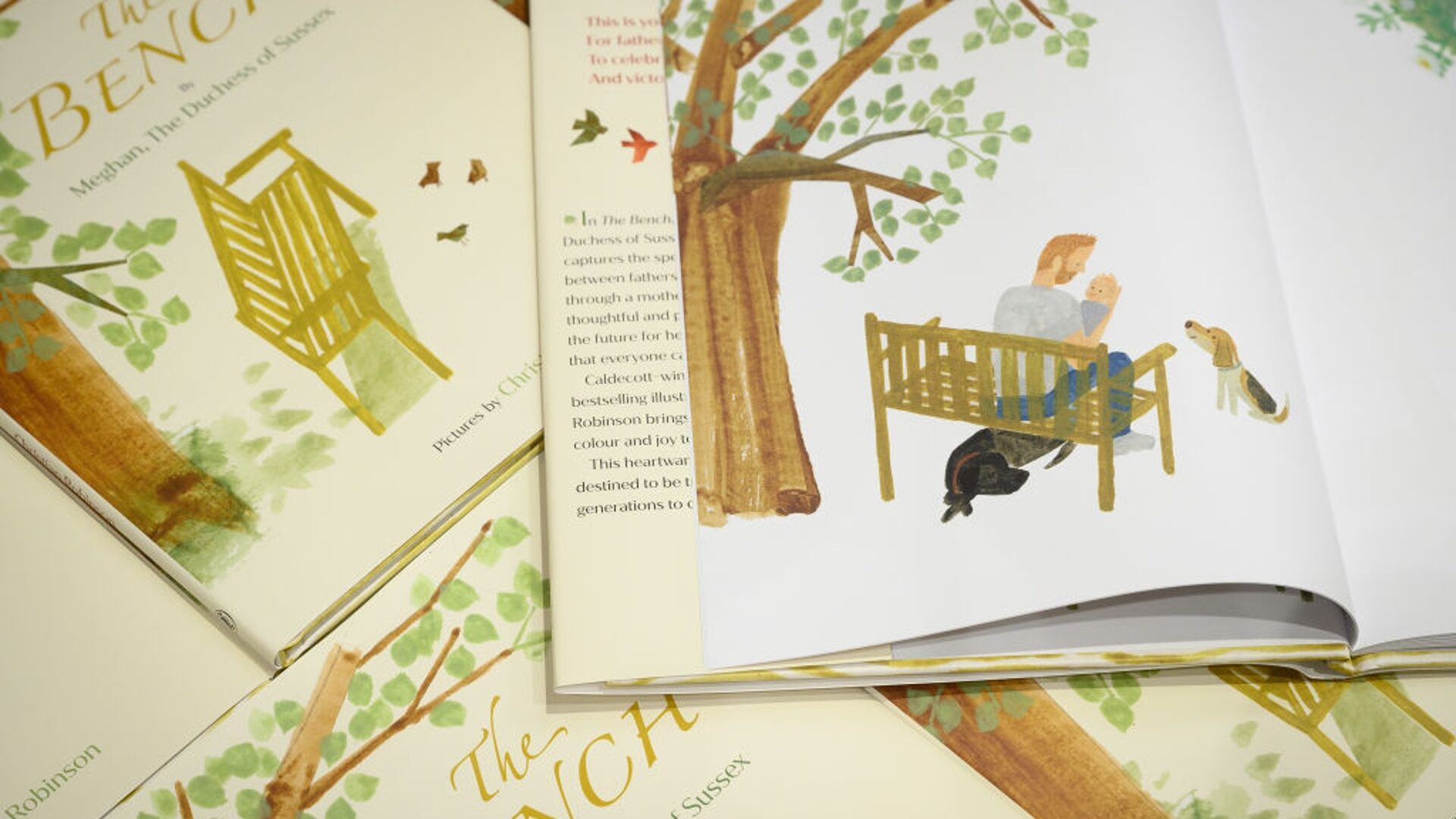
© Getty
The Duchess of Sussex says she wants her father/son themed children's book
The Bench 'to depict another side of masculinity — one grounded in connection, emotion, and softness.' This assumes of course that men aren't already connected, emotional and soft, which, as a touchy-feely kind of bloke I find a little off.
Imagine if I had written a children's book about a mother/daughter relationship (that could never happen, of course) and then announced that I wanted to depict 'another side of femininity - one grounded in connection, emotion, and softness.' The outrage would probably be threefold - I'd almost certainly be harangued for presuming to understand the unique relationship between a mother and daughter; I might also be criticised for demanding that women pander to outdated feminine stereotypes while simultaneously insinuating that the female sex is by nature hardnosed, unemotional and lacking in empathy. I'd quite rightly be pilloried for such phallocentric insolence. So why the double standards; why is it okay for one author to make wild pronouncements about how she'd like the opposite sex to be?
It seems we have arrived at a point in our evolutionary development where men must reject out of hand their manlier instincts in favour of more 'womanly' traits. The feminisation of all things male is taking place just as women are being encouraged to do the exact opposite. So while 'we got this/you-go-girl' sentiments are seen as empowering for women, men who play to their masculine strengths are seen as problematic, dysfunctional or oppressive. Masculinity in all its wonderful, messy complexity is effectively being erased from our collective consciousness.This attempt to delegitimise masculine virtues can be traced back to the American Psychological Association's 'guidelines for psychological practice with men and boys', a landmark report aimed at medical professionals which unapologetically pathologises 'traditional masculinity' as 'psychologically harmful' especially to women and minorities.
It's surely no coincidence that this divisive view of half the population emerged in August 2018, a few months after Harvey Weinstein set in motion one of the most significant acts of female solidarity since the Suffragette movement. But the MeToo campaign of three years ago has long since moved on from calling out actual cases of abuse to something much more revolutionary and all-encompassing.If the critical theorists are to have their way, masculinity must align with the evils of 'whiteness', which is why anyone who dares to suggest that masculine competency is a force for good in the world is either ridiculed or demonised. Jordan Peterson's book
12 Rules for Life prompted exactly this reaction.
The idea that men might want to strive to be responsible, hard working citizens provoked a torrent of hostility from political activists who can only ever see males as oppressors. Indeed my own book about how men might live a more meaningful life has received its own share of enmity, as if offering advice to males were somehow an act of misogynistic treachery.For the modern social justice advocate, traditional masculinity isn't merely a busted flush; it is the last remaining obstacle to a glorious matriarchal future where wars are a thing of the past, and men are remade in women's image.
James Innes-Smith is the author of The Seven Ages of Man — How to Live Meaningful Life
published by Little, Brown on 5 November 2020.
Comment: See also: